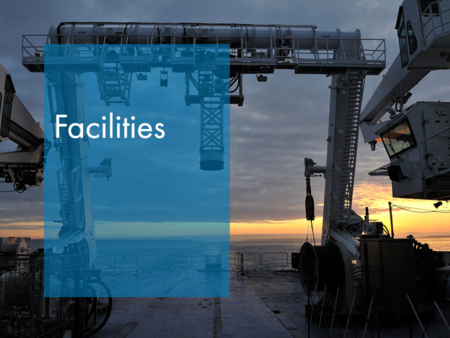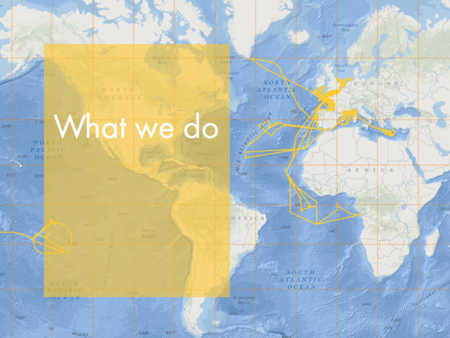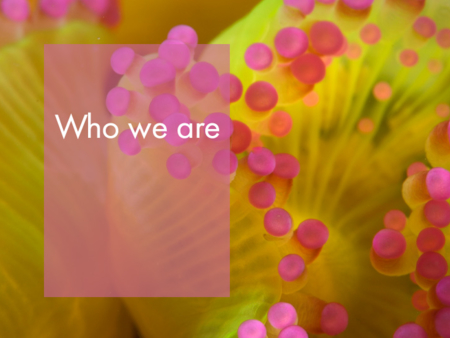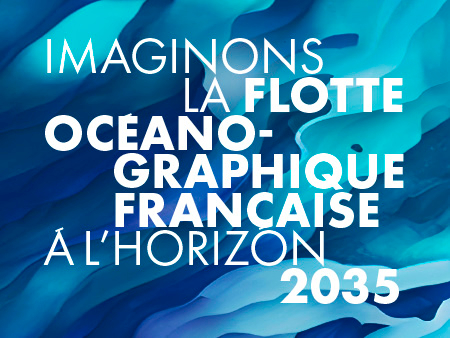1.5. On-board teaching and Mainstream operations
1.5.1 On-board training
The FOF fulfils a primordial teaching mission in training future technicians, engineers and researchers in the different disciplines, via different university-level training such as DEUST, DUT and master’s courses and even the PhD and summer schools (intended for French and international students). There is also training at the Engineering Schools and the National Arts and Trades School. This demand not only concerns teaching establishments on the mainland but also in the overseas territories.
Station vessels have always been used in training. In-shore vessels are more rarely made available, but this situation is changing as the moderator ticket has been discarded and changes are being made in training approaches using on-board research (cf. Report from the meeting of the Marine Universities and the Marine Board in July 2016, Appendix 7).
There are different methods for technical or analytical training and for marine research. The essential part of this training comes in the form of recurring training sessions, mainly using training models, which is a condition for them to be prioritised during evaluator programming.
The former concerns day trips, essentially dedicated to DUT, DEUST and Degree-level training in different disciplines, mainly on station vessels, although in-shore vessels might be requested, depending on the workforce and the type of techniques used.
Master’s degree and Graduate School training can comprise work over several days on in-shore vessels, during missions dedicated exclusively to teaching or benefiting from regular national or European observation missions. The training is then carried out in H24 with quarts systems. Since 2010, MOOSE-GE campaigns have helped to complete training for students on several master’s courses by providing practical work experience on board within the “Observation Methods” class on the WAPE master’s course from the UPSAY and OACOS from the UPMC. This requires the campaign to be scheduled at a very precise period.
In another register, for master’s and PhD students, Floating Universities or Universities at Sea are organised more sporadically, taking opportunities during major research campaigns on-board ocean-going vessels, by pooling several universities and students, within a European and international framework.
Future researchers in oceanography professions are also trained by almost systematically putting master’s and PhD students on-board during campaigns at sea carried out by their host team.
Up until 2014 (when stop-offs could be made in Cotonou and Abijan), PIRATA campaigns allowed training on taking measurements at sea for young West African researchers and students (Ivory Coast, Benin, Togo, Nigeria, Senegal, Ghana) and particularly students from the regional master’s 2 “Physical Oceanography and applications” from Cotonou in 2009 and 2011.
Finally, in the overseas territories, the universities of La Réunion and New Caledonia have already asked to access FOF oceanographic vessels.
1.5.2 . Mainstream Operations
Most campaigns at sea carried out with the FOF keep a logbook on board and run a blog and they send out a press release before and after the campaign leading to interviews on the radio and TV and articles appearing in the press. Many dedicated operations are put together in partnership with a primary school, a middle school or even prisoners as part of a pedagogic project with their Local Teaching Unit (Seysses Prison, GEOVIDE campaign, Pourquoi pas? 2014).
Reports and films are also produced involving media studies and journalism students as well as professional journalists. So, during the BIOBAZ campaign in 2013, the director Jean-Yves Collet came on board with his assistant to make a 52-minute documentary called “Abysses, les alliances des profondeurs”, shown on France 5 in August 2014. Apart from access to images from the ROV Victor, during the campaign, the director made the most of several sessions directly supervising ROV operations from the control module. For the last few years, making the most of the vessel’s high-speed transmission capabilities, live experiences have begun, such as the Night of the Deep-ocean floor (live broadcast of an ROV dive to the public, followed by a video-conference with the shore team). Since 2012, the Abyssbox permanent exhibition in Océanopolis (Brest) has been presenting deep sea fauna from the MOMARSAT and BIOBAZ campaigns to the south of the Azores in pressurised aquariums (Ifremer, UPMC, Océanopolis partnership). Finally, a few participative science projects aim to get the public involved in data analysis. This is the case of the “Espions des grands fonds” (Deep-sea spies) operation (http://deepseaspy.ifremer.fr) which has just been launched to process videos obtained by deep-sea observatories.
Beyond these specific activities, different manifestations such as the “Fête de la Science” (Science Festival), “Fêtes de la Mer” (Sea Festival), "World Oceans Day" or the “Nuit des Chercheurs” (Night of the Researchers) in Brest and also in Toulouse, Boulogne-Wimereux, Marseille and all the marine stations and labs showcase oceanographic expeditions.




